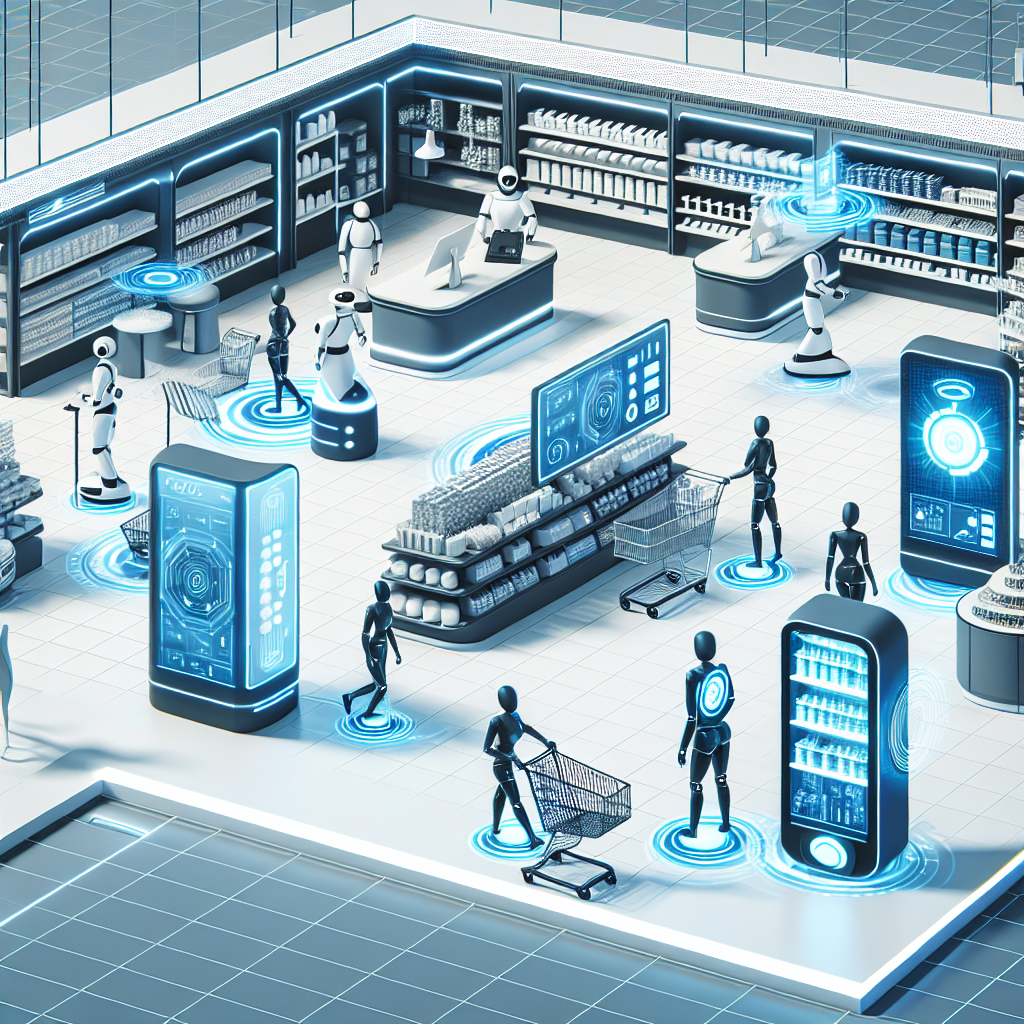The Future of AI and Machine Learning in Retail
Artificial Intelligence (AI) and Machine Learning (ML) have already begun to revolutionize the retail industry, and the impact of these technologies is only expected to grow in the coming years. From improving customer experiences to optimizing supply chain management, AI and ML are changing the way retailers operate and engage with consumers. In this article, we will explore the future of AI and ML in retail and discuss the key trends and developments that are shaping the industry.
1. Personalized Shopping Experiences
One of the most significant ways that AI and ML are transforming the retail industry is by enabling personalized shopping experiences for consumers. By analyzing large amounts of data, including purchase history, browsing behavior, and demographic information, retailers can create tailored recommendations and promotions for individual customers. This not only enhances the customer experience but also increases sales and customer loyalty.
In the future, we can expect to see even more advanced personalization techniques, such as predictive analytics that anticipate customer needs and preferences before they even realize them. Retailers will be able to offer personalized discounts, product recommendations, and marketing messages in real-time, leading to higher conversion rates and customer satisfaction.
2. Inventory Management and Demand Forecasting
AI and ML are also revolutionizing inventory management and demand forecasting in the retail industry. By analyzing historical sales data, market trends, and external factors such as weather and economic conditions, retailers can optimize their inventory levels and reduce stockouts and overstocking. This not only improves operational efficiency but also increases sales and reduces costs.
In the future, AI and ML algorithms will become even more sophisticated, enabling retailers to accurately predict demand and optimize their inventory levels in real-time. This will help retailers to minimize waste, maximize sales, and improve the overall customer experience.
3. Supply Chain Optimization
Another area where AI and ML are making a significant impact in retail is supply chain optimization. By analyzing data from suppliers, transportation providers, and internal operations, retailers can improve the efficiency and reliability of their supply chains. AI and ML algorithms can optimize route planning, inventory management, and production scheduling, leading to faster delivery times, lower costs, and improved customer satisfaction.
In the future, we can expect to see even more advanced supply chain optimization techniques, such as autonomous vehicles and drones for delivery, blockchain technology for tracking and tracing products, and predictive analytics for identifying potential disruptions before they occur. These technologies will revolutionize the way retailers manage their supply chains and ensure timely and efficient delivery of products to customers.
4. Fraud Detection and Security
AI and ML are also being used in the retail industry to improve fraud detection and security. By analyzing transaction data, customer behavior, and other factors, retailers can identify suspicious activities and prevent fraud before it occurs. AI algorithms can detect patterns and anomalies in real-time, enabling retailers to take immediate action and protect their business and customers from fraudulent activities.
In the future, we can expect to see even more advanced fraud detection and security techniques, such as biometric authentication, behavioral analysis, and machine learning algorithms that can adapt and learn from new threats. These technologies will help retailers to stay ahead of cybercriminals and protect their business and customers from potential security breaches.
5. Virtual Assistants and Chatbots
AI-powered virtual assistants and chatbots are becoming increasingly popular in the retail industry, enabling retailers to provide personalized customer service and assistance 24/7. By using natural language processing and machine learning algorithms, virtual assistants can answer customer inquiries, provide product recommendations, and process orders in real-time. This not only improves the customer experience but also reduces the workload on customer service agents and increases operational efficiency.
In the future, we can expect to see even more advanced virtual assistants and chatbots that can interact with customers in a more human-like manner, understand complex queries, and provide personalized recommendations based on individual preferences. These technologies will enable retailers to offer seamless and personalized customer service across multiple channels, leading to higher customer satisfaction and loyalty.
FAQs
Q: How can AI and ML help retailers improve customer loyalty?
A: AI and ML can help retailers improve customer loyalty by providing personalized shopping experiences, tailored recommendations, and promotions based on individual preferences. By analyzing data from multiple sources, retailers can anticipate customer needs and preferences, leading to higher customer satisfaction and loyalty.
Q: What are the key benefits of using AI and ML in inventory management?
A: The key benefits of using AI and ML in inventory management include optimized inventory levels, reduced stockouts and overstocking, improved demand forecasting, and lower costs. By analyzing historical sales data and market trends, retailers can optimize their inventory levels and improve operational efficiency.
Q: How can retailers use AI and ML to improve supply chain optimization?
A: Retailers can use AI and ML to improve supply chain optimization by analyzing data from suppliers, transportation providers, and internal operations. By optimizing route planning, inventory management, and production scheduling, retailers can improve the efficiency and reliability of their supply chains and ensure timely delivery of products to customers.
Q: How can AI and ML help retailers improve fraud detection and security?
A: AI and ML can help retailers improve fraud detection and security by analyzing transaction data, customer behavior, and other factors to identify suspicious activities and prevent fraud before it occurs. By using machine learning algorithms that can adapt and learn from new threats, retailers can protect their business and customers from potential security breaches.
In conclusion, the future of AI and ML in retail is bright, with these technologies expected to revolutionize the industry in the coming years. From personalized shopping experiences to optimized inventory management and supply chain optimization, AI and ML are transforming the way retailers operate and engage with customers. By embracing these technologies and leveraging their capabilities, retailers can stay ahead of the competition and drive growth and innovation in the retail industry.

